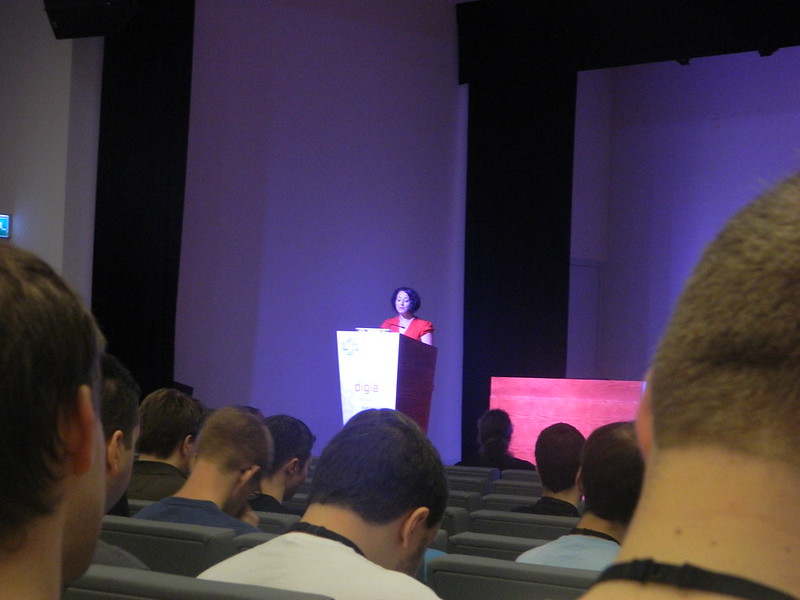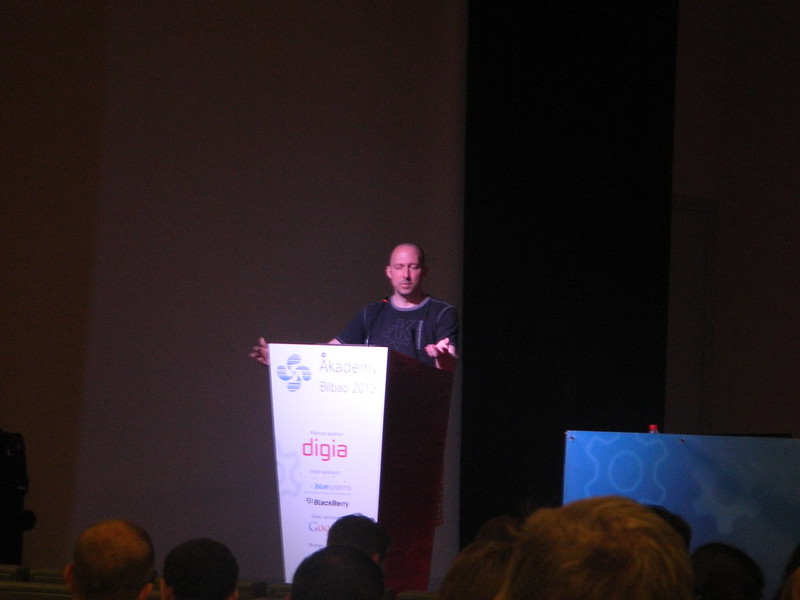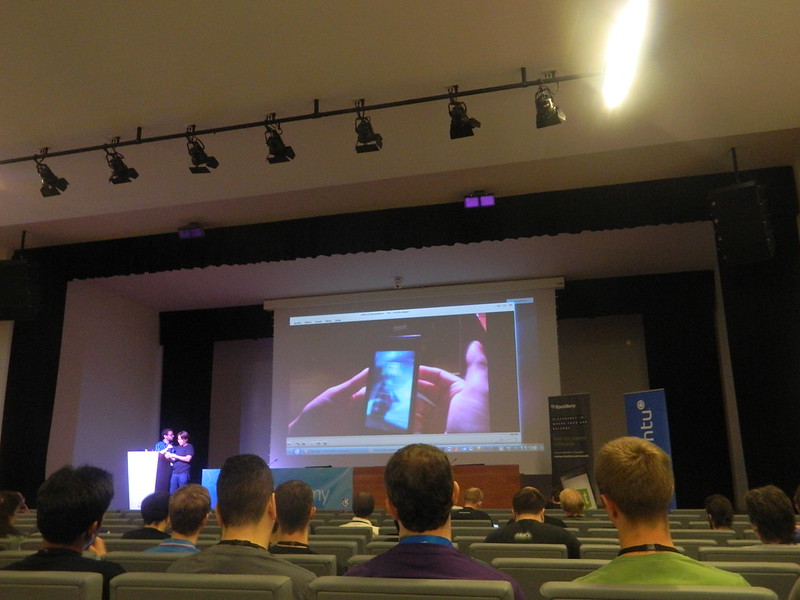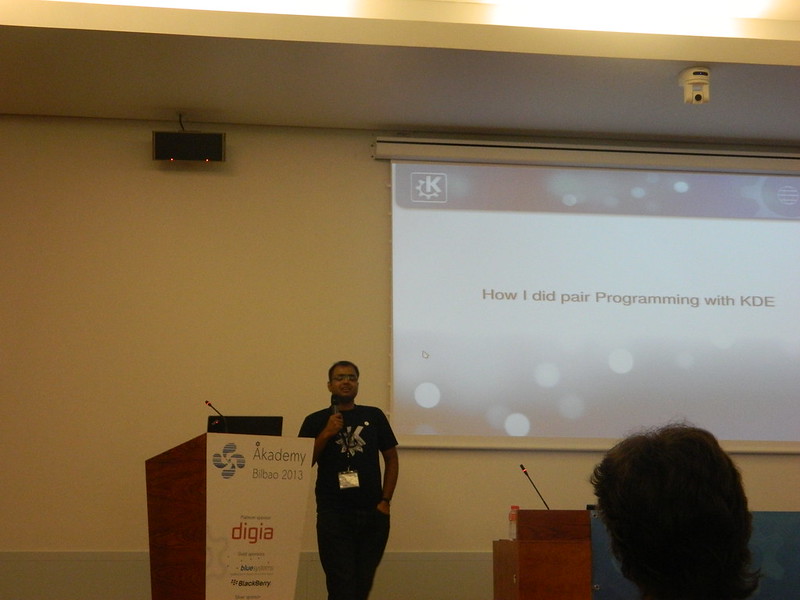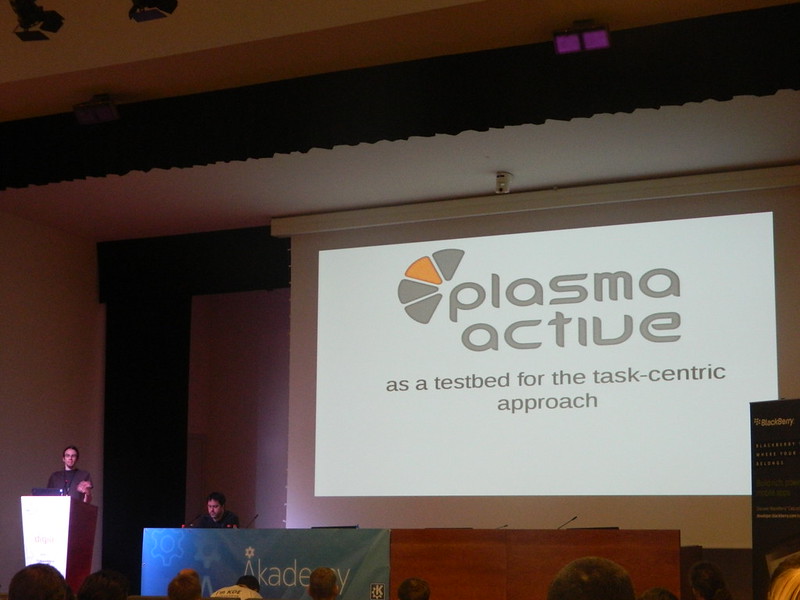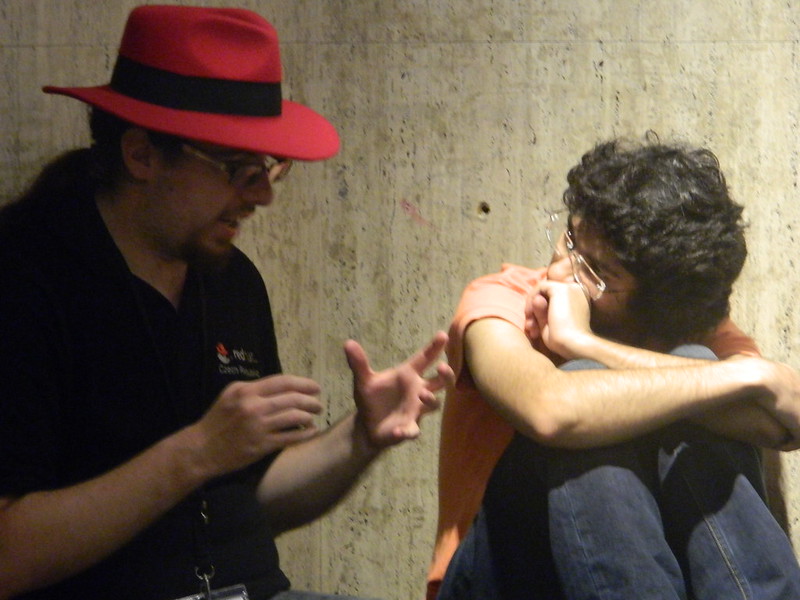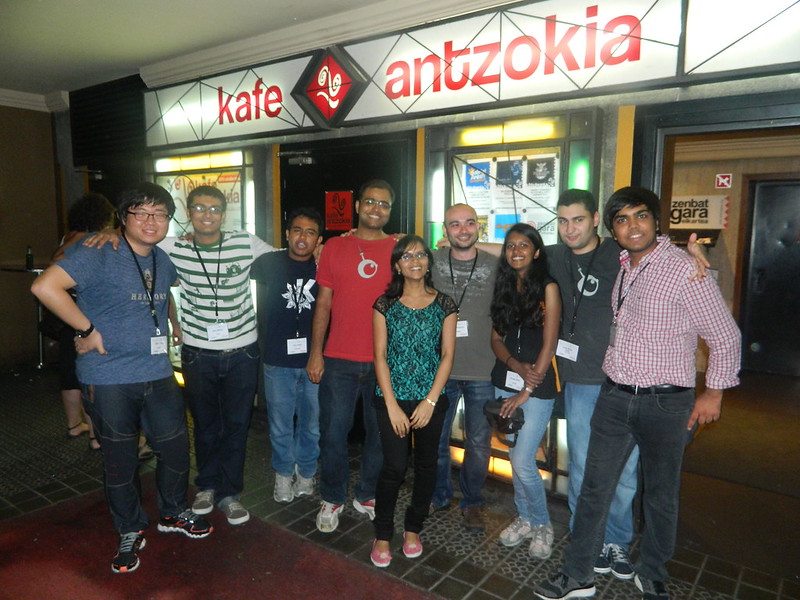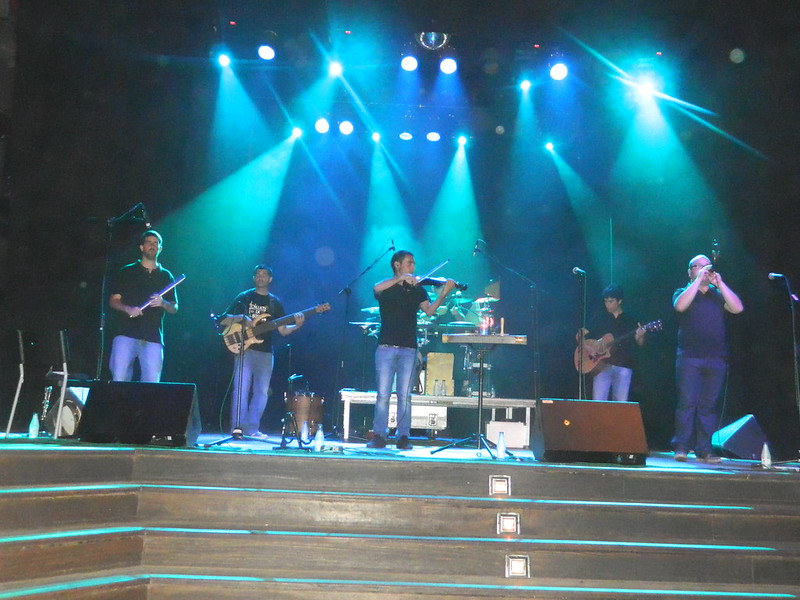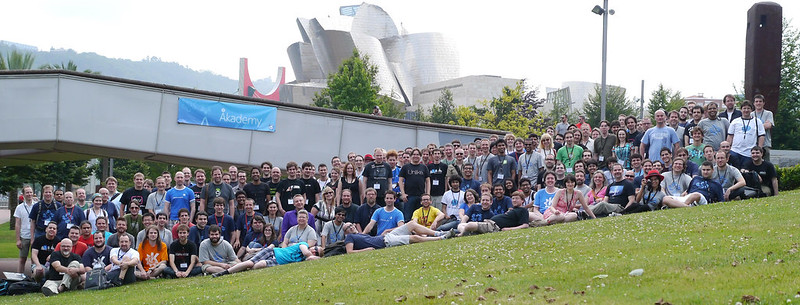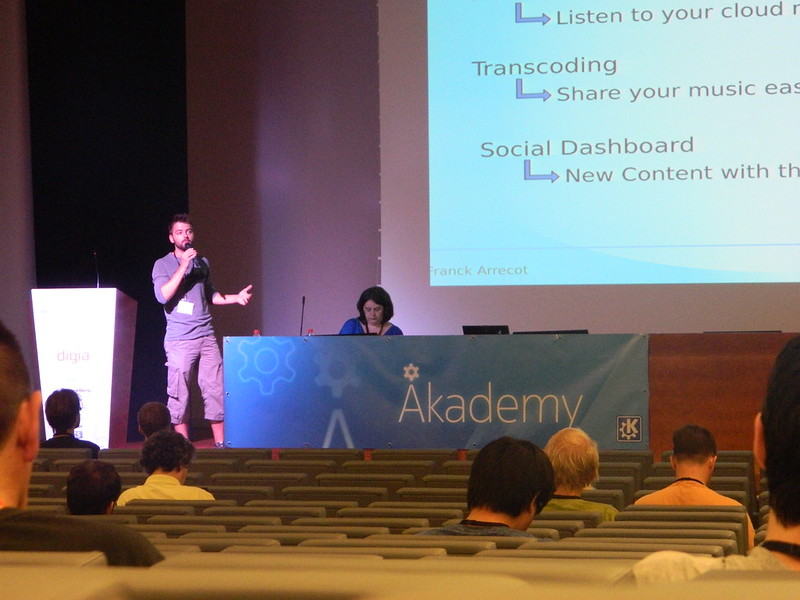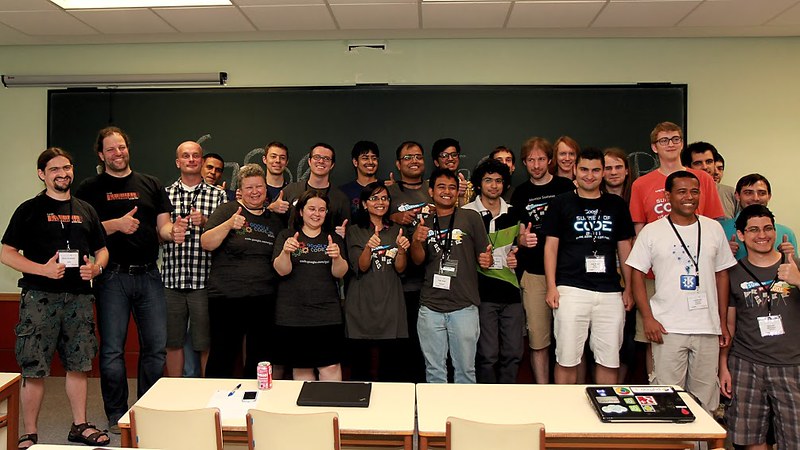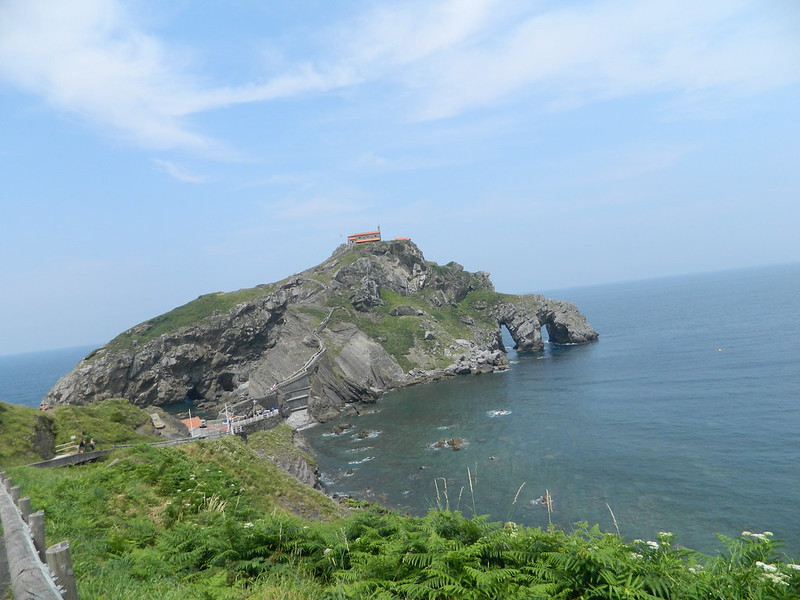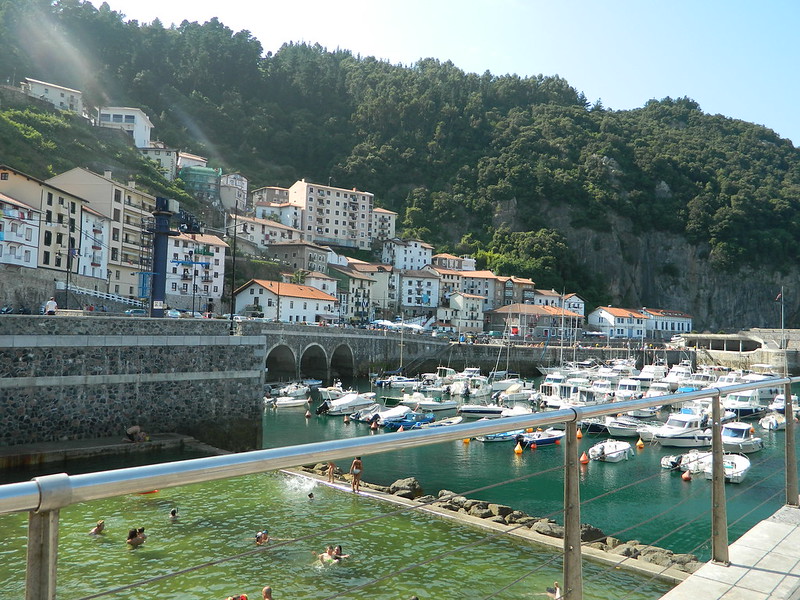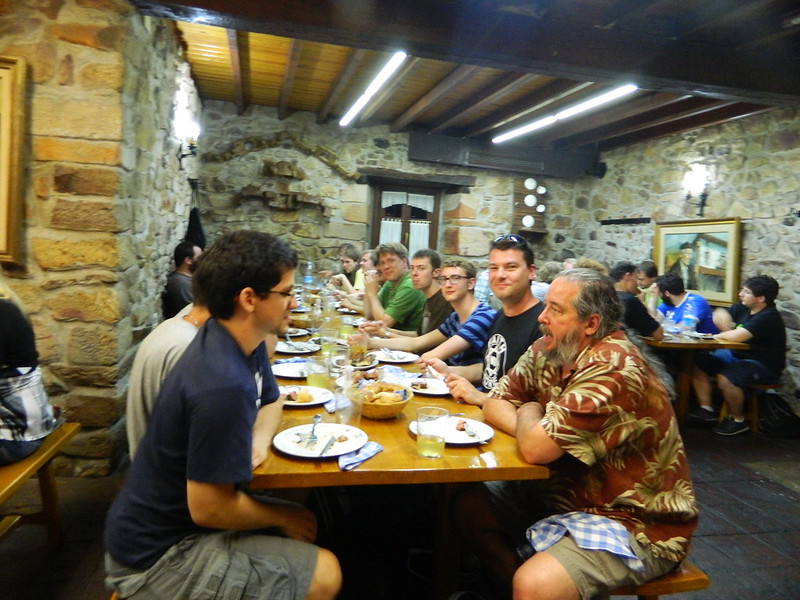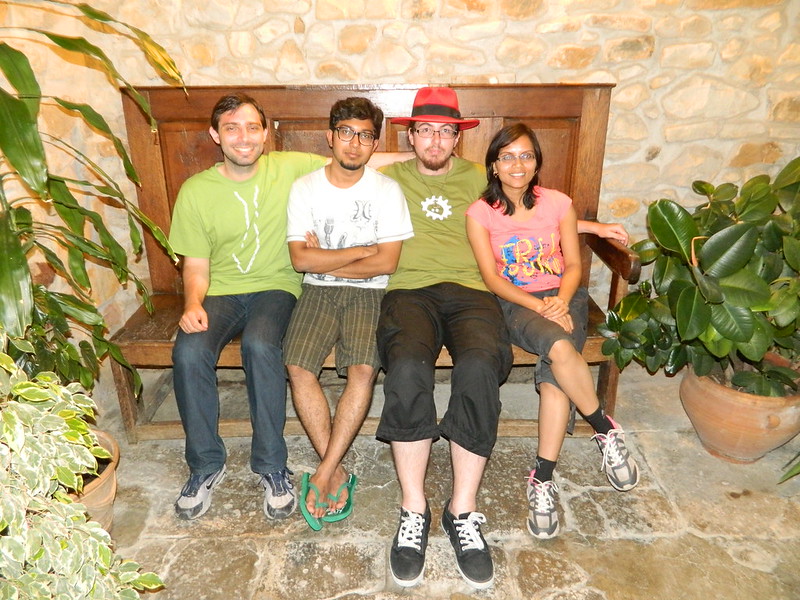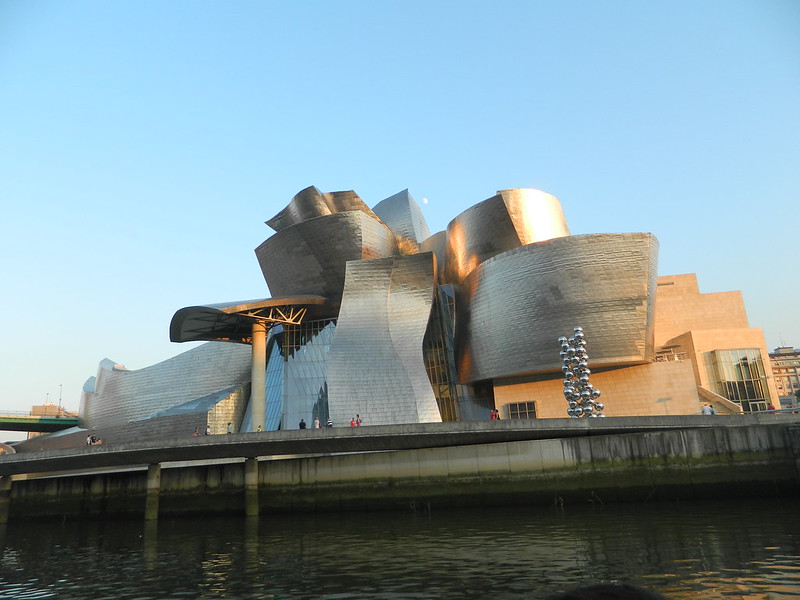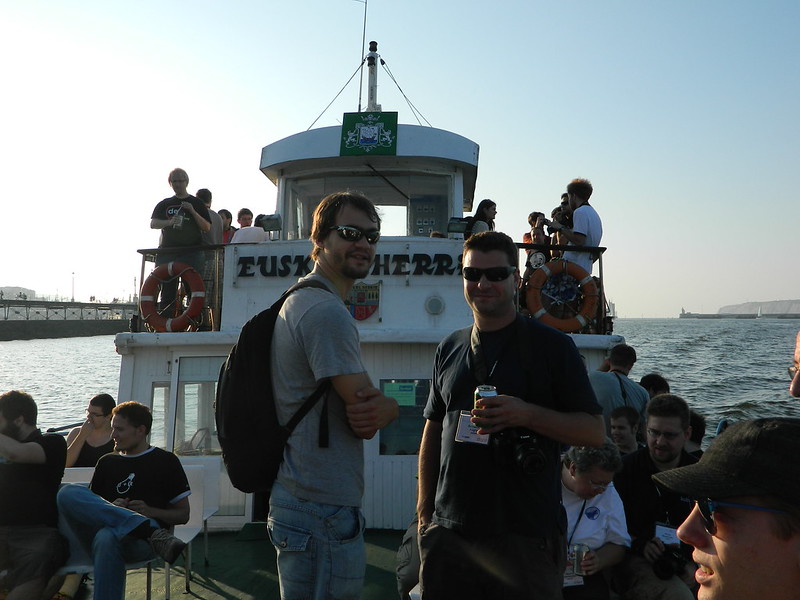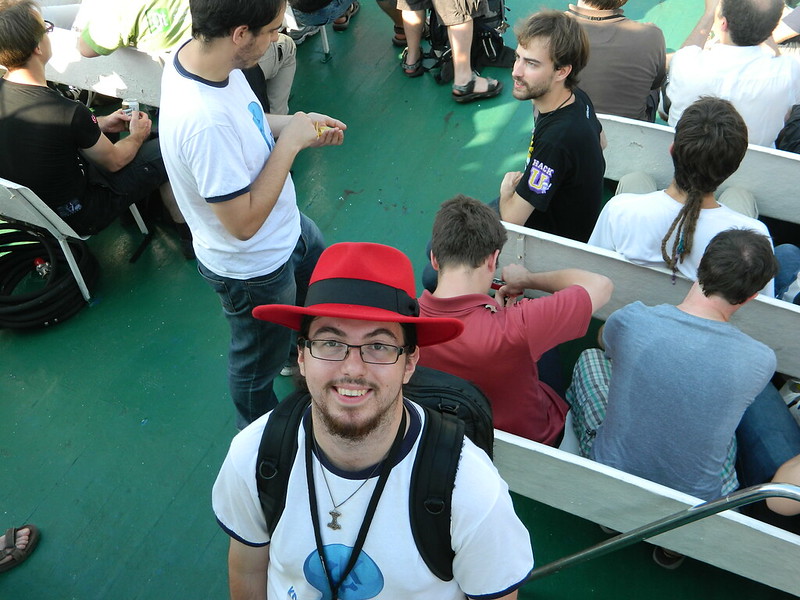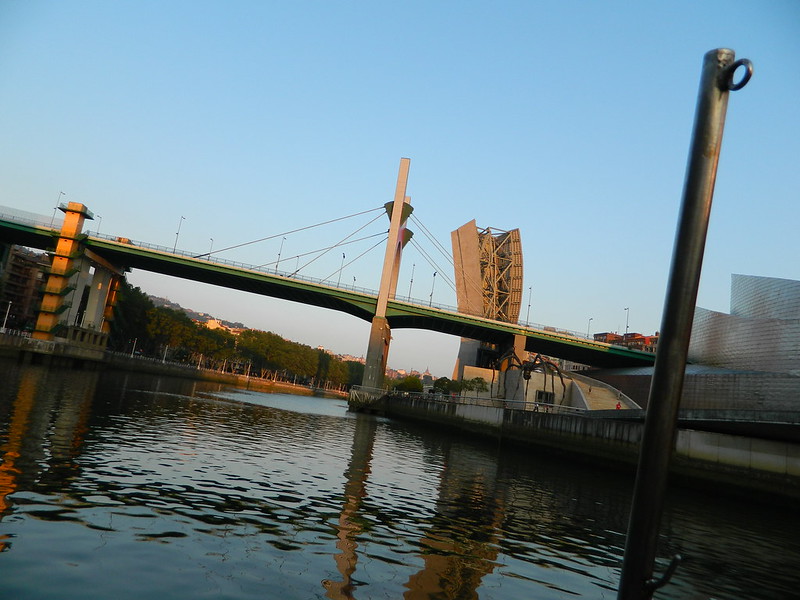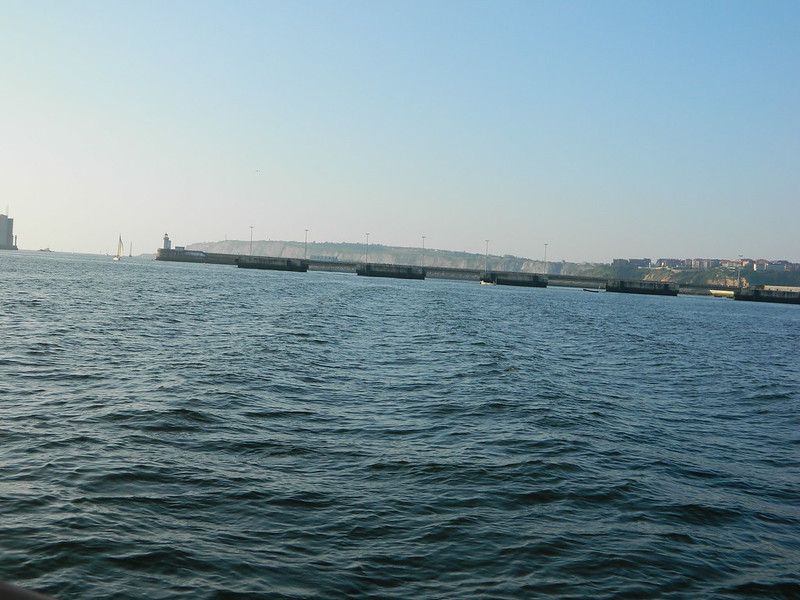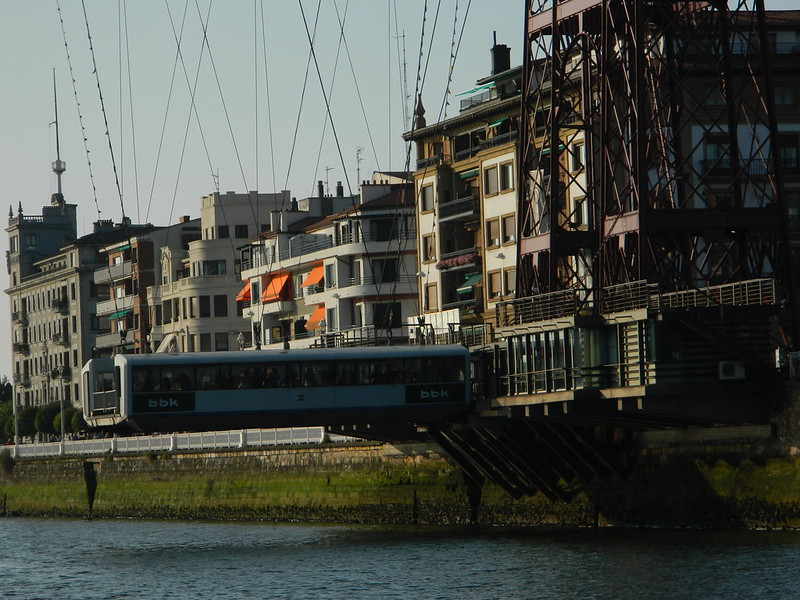Il blog di Red Hat
This year, Akademy, the annual conference for developers and users of KDE, took place in sunny Bilbao in the northern part of Spain. The conference officially started on Saturday, 13th July and lasted till Friday.
Those who arrived already before Saturday could go to a pre-registration event on Friday evening, which took place in a nice little restaurant in the old part of city. The party lasted till late in the night. Everyone then went to their hotels to regain energy for upcoming two days full of talks.
It’s a tradition that the opening keynote for Akademy is on a non-technical topic about some recent event or situation. This year they keynote was given by Eva Galperin from the EFF and titled "Say Hello the Surveillance State: What NSA Surveillance Means to Non-US Persons".
After the keynote, the conference could start in full. Kevin Krammer, a Qt and KDE PIM developer from KDAB, talked about using QML to create a QWidget-based UI. In the other room, Marta Rybczyńska, editor of the weekly KDE Commit Digest and real-time kernel, expert talked about Polish KDE translation project and the KDE Commit Digest and how such non-programming projects are organized and work within the world of opensource. After a coffee break, Till Adam from KDAB tried to answer whether supporting KDE on new BlackBerry smartphones makes sense or whether it’s yet another waste of time. Armijn Hemel gave an interesting talk on finding prior arts to software patents and explained major flaws in the US Patent law. These talks were followed by David Greaves' take on how to make Mer and Qt the right solution of choice for device vendors. In parallel to his talk, three long-time KDE hackers David Edmundson, Vishesh Handa and Martin Gräßlin talked about how to improve quality of open source projects, told us about mistakes they’ve done in past in their projects and what they learned from them.
After lunch, Vesa-Matti Hartikainen from Jolla presented Sailfish OS, a Linux-based OS for mobile devices with a Qt-based UI built by Jolla that powers the company’s first smartphone. Next, Will Stephenson talked about how we should strive to make KDE as much modular as possible and presented the Lightweight KDE project. Torsten Rahn presented us with the latest updates in Marble, virtual globe and world atlas built with KDE technologies. Their talks were followed by Jerome Leclanche from Razor-Qt community about cooperation between Razor project and other desktop environments and Lydia Pintscher’s talk about how to prevent burnout when working on FOSS projects. After they spoke, Marco Martin, one of Plasma developers, talked about plans for Plasma 2 and Plasma Frameworks. Devaja and Yash Shah from India did a presentation about last KDE India meetup that took place earlier this year. After everyone got their dose of coffee in during another coffee break, the conference could continue. Martin Gräßlin shared his experience from porting KWin, the KDE Window Manager to Qt5 and Shantanu Tushar talked about his experience with pair programming. The last two talks were done by Jos Poortvliet, who talked about marketing KDE and KDE usability experts Thomas Pfeiffer and Björn Balazs, who presented their new concept of task-centered UI.
As every year, Saturday evening on Akademy means party. And a big one. Almost everyone arrived to Kafe Antzokie in downtown Bilbao. This year developers gave up on karaoke and rather left the music and singing to professionals (but not dancing, at least for the second part of the concert). During the evening we saw "Las Dos D" playing traditional Cuban music and after them "Adarrots", a well-known Basque folk group.
Summary (1st day):
On Sunday morning, the conference center was more empty than usual. Although there were quite a few listeners in on the morning talks, most people arrived a bit later. The first talks of the day were about progress in Krita, KDE painting and illustration software, done by Timothée Giet and about using QML to improve KStars, the KDE astronomy application. These talks were followed by Jos van den Oever and Friedrich Kossebau who talked about OpenDocument Format and did a nice demonstration of WebODF. Oihane Kamara talked about how Marble is used in scientific projects. After the morning coffee break there were presentations by students participating in GSoc, SoK, Code-In and OPFW programs and in parallel Friedrich Kossebau talked about Kasten framework, a possible future replacement for KParts. Before lunch, Lydia Pintscher gave a talk called "Negotiation Theory for Geeks" or how to solve conflicts in FOSS community. In the other lecture room there were three lightning talks. First was done by Matija Šuklje, FSFE Legal Coordinator. It was about the Feduciary License Agreement. It’s a voluntarily agreement which allows KDE e.V. to update licenses in KDE SC and protect the KDE projects and developers from copyright and patent lawsuits. Second lightning talk was done by Daniel Vrátil from Red Hat KDE Desktop Team about KScreen, the new screen management software he works on. The last lightning talk was given by Aleix Pol, a KDevelop developer, who talked about what’s new in KDevelop, a very powerful IDE for developing C++, Qt and KDE applications.
After the mandatory group photo and lunch, Kevin Ottens, a long-time KDE hacker and author of KDE Manifesto held a community keynote titled "The KDE Democracy". His keynote was followed by a talk about KPeople, a metacontacts library for KDE done by Vishesh Handa and Martin Klapetek and a talk about ThreadWeaver, an extremely powerful framework for thread management in KDE Frameworks by Mirko Boehm. The next talks were by Peter Grash, who talked about FLOSS Speech recognition software, and Volker Krause, core KDE PIM developer, who did a very interesting talk about expression templates and template meta-programming. After another coffee break the talks continued again. Joseph Wenninger talked about Scripting in KATE, KDE Advanced Text Editor, Millian Wolff presented various ways for improving performance of C++ applications. The last talks of the day were by Mailson Menezes who presented the new tiled-based engine for Okular, KDE multi-document (PDF, Djvu, PS, ebook, etc) reader and Kai Koehne about differences between Qt Quick 1 and Qt Quick 2.
After sponsor presentations, the Akademy Awards committee presented four awards: Best Application award for Eike Hein for his work on Konversation, KDE IRC client, Best Non-Application award for Vishesh Handa for taking over the Nepomuk framework and for the outstanding job he’s done in stabilizing and improving performance of the framework. Jury’s Awards went to Timothée Giet for shaping the future and community of Krita and Kenny Duffus for his contribution to Akademy. The Organization Award went to Dani Gutiérrez and the whole Akademy team as a thank you for organizing a wonderful event.
Summary (2nd day):
Usability workshop
The BoF was organized by Björn Balazs, Björn is an expert on usability and he cooperates with KDE for several years. For this BoF Björn has selected a few applications (KScreen, plasma-nm, Plasma Media Center, KStars). Each application was represented by one of the developers who had two users (who didn’t know anything about that project) for testing. The aim was to give user a task (related to the application) and navigate the user through some steps like "What do you think you can do?" How do you think you can do that?", "What do you expect from this step?" etc. Developers could then track how users think and learn how to improve their applications.
Usability BoF from plasma-nm POV
The basic task for plasma-nm was "connect to the Akademy wireless network". Both users thought that they can connect simply by clicking on "Akademy" connection in plasma-nm applet, but unfortunately they were wrong.
Translators BoF
Various points were discussed amongst the 7 translators which attended the meeting, and the time ran out quickly. Topics discussed: the ongoing GSoC which should introduce a booking system for translations; offline translations for the wikis (techbase, userbase, community); fixing i18n bugs; the proposed change in the KDE SC release cycle. No time left to discuss how to promote the translation teams.
Mentoring program (GSoC, Google Code-in, SoK, Outreach Program for Women)
This BoF was organized by Lydia Pintscher and Cornelius Schumacher to share experiences, discuss how to improve the mentoring programs, and talk about any questions come up. First of all, participants introduced themselves what they have done in the past related to mentoring programs. Most of the people first participated as students and later became mentors in these programs. We also discussed some of the issues which mentors faced while selecting student in mentoring programs and how to improve mentoring programs. We also did a group photograph in which attendees were wearing different mentoring program T-Shirts.
Proposal for more frequent release schedule
The discussion started from the 3-month release schedule for the set of KDE Platform, Workspaces and Applications, which is not 6 months. Outcome: the next release (4.12) will most probably follow 5 month release schedule, but new tools will be developed to improve things like (new) dependency tracking, better release management, and the length of release schedulebe re-evaluated.
Plasma Media Center (PMC) BoF
This BoF was organized by SInny Kumari to discuss future plans and implementation details for few features in PMC. One of the most important things were to consider plans for improvements according to the Usability study done on Monday Usability BoF. This study had highlighted issues with our UI that need fixing. Other than fixing UI issues, Vishesh Handa from the Nepomuk project pointed out that users should be able to add their media collection to the nepomuk index straight from PMC without needing to go to System Settings. We plan to implement a screen for this.
Day Trip
On Wednesday afternoon three buses full of people set off on a daytrip to the island Gaztelugatxe and some other villages on the Basque coast. In the evening there was a dinner in a typical cider brewery accompanied by traditional Basque music.
Solid BoF
Solid BoF was about hardware related stuff. Phillipp Schmidt and Matěj Laitl were working on MTP support in KDE which is necessary for example for Android mobile phones and tablets.Phillipp was working on some improvements in kio-mtp and Matěj continued on his work on MTP integration in Amarok. Patrick Von Reth improved solid backend for Windows. Jan Grulich from Red Hat KDE Desktop Team and Lamarque Souza have fixed some issues in plasma-nm introduced after usability BoF on Tuesday and discussed with Thomas Pfeiffer improvements in plasma-nm for Plasma Active and Network Active settings.
Plasma Active BoF
This BoF was centered most around the task-centric UI that has been envisioned. This talks about the user being able to complete a task end-to-end (e.g. rip music from CD and copy to iPod). For this to be possible, we explored the ways applications can advertise their capabilities ("hey I’m an app that can rip music") so that they can be connected to create tasks (called Flows).
Okular BoF
This BoF was used to cleanup a bit the list of the open review requests and the most voted or long standing bugs. The work on the new improved tiled rendering code (ongoing) was presented.
KDE Telepathy and LibKPoeple
KDE Telepathy is a new instant messaging framework for KDE. In the session developers discussed mostly plans for upcoming 0.7 release. There is still plenty of work to be done, a lot of effort will go into fixing and porting QtGStreamer so that KTp can properly handle audio and video calls again. Next topic was TelepathyQt, a Qt implementation of the Telepathy specification. Discussed was splitting out TpFarstream, preparing Qt5 port and moving towards Qt5 C++11 support.
LibKPeople is a meta-contact library, currently under heavy development. Its goal is to merge all contact from all applications in KDE (including KDE Telepathy, KAddressbook, KMail and others) and store them in Nepomuk semantic database. KPeople will aggregate details about users' contacts from various sources and present them as a single information. With this integration, users will be able for example to start IM chat from email client, transparently send a file via email if the contact is not online on any IM service etc.
KDE Frameworks
Many important discussions about Frameworks, the upcoming modular version of Platform (libraries) based on Qt5. Main topics covered: the current status of the various modules, with their dependencies and the "Tier" they belong to; the tools which will be used to build KF5 (split into more pieces than now); C++11 support (a subset of features, widely supported on many compiler, was discussed); and the tentative schedule, including the first technical preview (most probably December 2013) and the final release (first half of 2014, the exact date will be evaluated in December).
Boat Trip
For many attendees, Thursday was the last day at Akademy, although there were some more BoFs running on Friday morning. To properly enjoy the "last" day, there was a trip on a boat on the Bilbao river. The boat went to the sea and then back to the city.
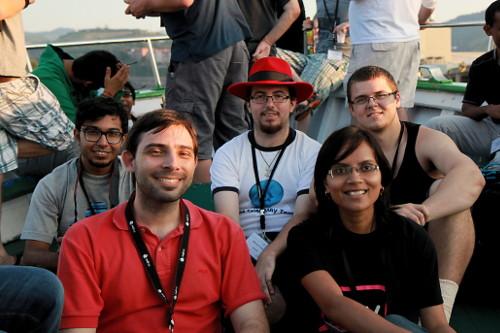
Other BoFs/Workshop summaries:
Report by: Daniel Vrátil, Jan Grulich, Luigi Toscano, Sinny Kumari

